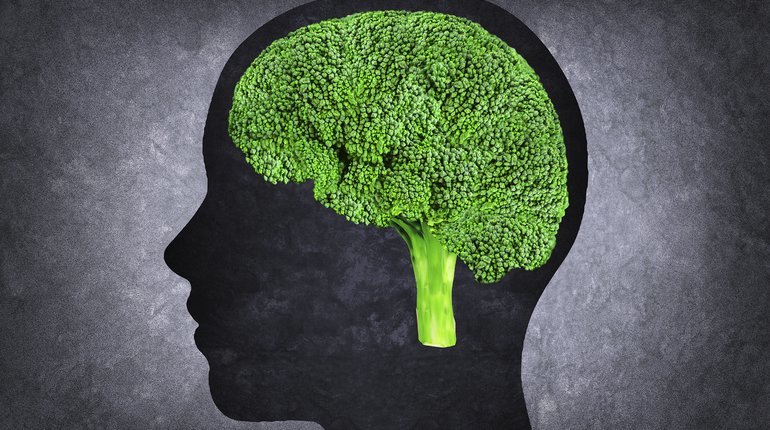This is a guest article by Dr. Nicholas A. Lesica. Nicholas is a neuroscientist at University College London (UCL), where he leads a research team that performs experiments to understand how the brain processes information from the senses. If you would like to hear more. Book your tickets to his next talk with this link.
Neuroscience of Healthy Eating
We all know that our physical fitness has a major impact on our wellbeing, yet most of us fail to sustain a diet and lifestyle that keep us healthy and happy. Part of the problem is that the constant flood of mainstream media articles touting the latest superfood or fat-blasting trick leave many people confused. But even those with a clear understanding of what it takes to stay lean and healthy still often struggle to do so.
Isn’t that strange?
Why would we naturally tend toward behaviors that we know are not in our best interest?
The problem becomes clear as soon as we recognize that the environment that we live in today is dramatically different from the environment that we evolved in. Our ancestors lived in a world in which food was scarce, so their chances of survival were improved by genes that encouraged them to be constantly active in search of food, and made them highly sensitive to environmental cues that suggested the possibility of obtaining it.
But now, in the span of just a few decades, we have become inundated by food, along with advertisements that are designed to trigger cravings for it. And, worse still, our modern foods are heavily processed: sugar is added and fiber is removed, which makes the foods unnaturally sweet and hard to resist, while depriving us of critical nutrients.
The genes that served our ancestors so well have now become a serious disadvantage because our modern environment has been engineered to exploit them. But we cannot change our genes to match our new environment and, unfortunately, there is little point in trying to directly suppress the behaviors that they encourage: willpower-based approaches to staying lean and healthy that involve calorie restriction and unpleasant exercise will inevitably fail.
What can we do to develop a healthy diet and lifestyle that we can sustain over the long term?
Fortunately, the science of diet and exercise has come a long way in the past few years and produced some incredibly valuable insights. It has become clear that most of the details that are argued about in mainstream media don’t actually matter: in rigorous experimental trials, most reasonable diet and exercise programs produce similar outcomes.
Do you think it matters whether you eat more fat than carbs or vice-versa? It doesn’t.
Do you think it’s useful to try to count the number of calories that you eat and burn? It isn’t.
There is now a consensus among scientists that, because our metabolism is so flexible, dietary specifics are largely irrelevant, and staying lean and healthy is simply a matter of making environmental and lifestyle changes to discourage the overconsumption of processed foods.
Thus, the seemingly complex problem of healthy eating can be simplified to one key question:
Based on what we know about how our brains control our eating decisions, how can we alter our local environment to eliminate the cues that trigger unplanned snacking, overeating at planned meals, and the consumption of processed foods in general?
Healthy eating: simple in theory, but difficult in practice
Processed foods, and the environmental cues that encourage us to eat them, aren’t going to disappear anytime soon. So, if we want to stay lean and healthy, we’re left with no choice but to take control of our local environment to minimize the amount of willpower required to avoid the overconsumption of processed foods
Because we are all so different, there can never be a simple one-size-fits-all approach to a healthy diet and lifestyle – we each need our own personal approach that is matched to our unique tastes, resources, and constraints. However, what is true for everyone is that the most important thing about a diet or exercise program is that it is enjoyable. Willpower is a limited resource, so any approach that requires us to constantly force ourselves to refrain from eating or do unpleasant exercises is guaranteed to fail.
In other words, staying lean and healthy shouldn’t be hard. In fact, the only way to actually sustain it over the long term is to make it easy
Staying lean and healthy does not require that you deprive yourself or force yourself to suffer. In fact, what it requires is precisely the opposite: you have to control your environment so that you can maintain a healthy diet and lifestyle without the need for deprivation or suffering.
The genes that urge us to overeat processed foods evolved in an environment where food was scarce and the energy derived from it was a precious commodity. The problem is that our environment has changed dramatically, but our genes have not – they still urge us to behave as if we are preparing for a famine that will never come. The key to staying lean and healthy is to construct a lifestyle that will help you circumvent those urges, rather than trying to fight them head-on every time they arise.
If you would like to hear more from Dr. Nicholas A. Lesica, you can book your tickets to his next talk with this link.

